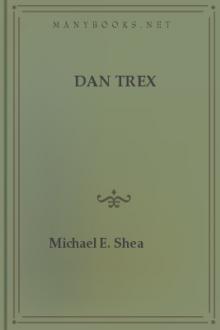How to Be a Mentsh (and Not a Shmuck), Wex, Michael [top inspirational books .txt] 📗

Book online «How to Be a Mentsh (and Not a Shmuck), Wex, Michael [top inspirational books .txt] 📗». Author Wex, Michael
Like Hillel in his ancient robes, like all those detectives who wear wide-brimmed hats, call most women “dames,” and spend their time solving murders, a mentsh never forgets that actions have consequences: farther down on the same page of tractate Shabbos, the three heathens whom Shammai chased away and who were then converted by Hillel come together sometime later and say, “Shammai’s bad temper sought to drive us from the world, but Hillel’s mild humility brought us under the wings of the divine presence” (Shabbos 31a). They are not the same people as they would have been had Hillel acted differently.
Important as brains are, there is also the matter of sensibility. What is an aspiring detecto-mentsh to do if he or she isn’t as smart as Philip Marlowe? What if you’re a little understaffed in the seykhl department? Take a look at P. G. Wodehouse and never forget: Bertie Wooster, mentsh; Gussie Fink-Nottle, newt fancier, shmuck.
VII
HILLEL’S MAXIM IS basically the how-to manual for the commandment in Leviticus about loving your neighbor, a sovereign remedy for the kind of exceptionalism that can always find an excuse for yourself while denying one to everybody else. There’s a phrase in the Talmud (Pesokhim 113a) that’s become the basis of a Yiddish proverb: “Ven freyt zikh got? When does God rejoice? Az an oreman gefint a metsiye un git zi op, when a poor person finds something that’s been lost and returns it to its owner.” Despite the fact that the pauper could either use the item or sell it for some much-needed money, he does the honest thing, the right thing. By thinking, “How would I feel if somebody stole this from me after I’d misplaced it?” instead of “My need is greater than the owner’s, so I have a right to keep this and dispose of it in any way that I see fit,” he doesn’t make himself any less poor, but he’s certainly made everyone around him a little more rich. In such a way of thinking, all egos become equal; none is any higher or lower than your own.
This kind of ethical egalitarianism helps to keep people from succumbing to the temptation to turn into the worst kind of shmuck, the kind who works actively to oppress others. In his book The Lucifer Effect, Philip Zimbardo describes an experiment carried out by an elementary school teacher who wanted to teach her students about racial prejudice “by arbitrarily relating the eye color of children in her classroom to high or low status. When those with blue eyes were associated with privilege, they readily assumed a dominant role over their brown-eyed peers, even abusing them verbally and physically.” The kids in the privileged group immediately began to perform better in school, while the kids in the other group did worse.
The next day, though,
Mrs. Elliott told the class she had erred. In fact, the opposite was true: brown eyes were better than blue eyes! Here was the chance for the brown-eyed children, who had experienced the negative impact of being discriminated against, to show compassion now that they were on top of the heap…[but] the brown-eyes gave what they got. They dominated, they discriminated, and they abused their former blue-eyed abusers.
This isn’t Bosnia or Rwanda; these are eight-year-olds in Iowa who haven’t the ghost of a pretext to go after each other. Without some way of checking their egos, though, something to keep them from doing cruel and obnoxious things only because they can, the kids, like so many adults before them, simply fall into a pattern of reciprocal abuse that has no other motive than opportunity.
“Do unto others” doesn’t really cut it once you’ve dehumanized those others and reduced them to something less than you are. You’re better off to shift your focus away from them and back to yourself. If you act enough like Hillel to bring your aversion to being a shmuck to the fore, you will refuse to do things to others that you don’t want done to yourself, regardless of what color their eyes are or how little you might think of them. You’ll be able to overcome any desire for revenge, any need to show someone who’s boss or what’s what. You don’t have to like them, you don’t even have to hate them. All that matters is that you aren’t them.
VIII
HILLEL LETS THE new convert know quite explicitly that even though “Do not do what is hateful to you to your fellow” can be said to sum up the whole of the Torah, there is still plenty of commentary that he’s going to have to learn, myriad different ways to make himself not hateful. The importance of study in Judaism has always been seen as a lovely, wonderful thing that let Jews sharpen their minds instead of their swords, gave them a certain advantage over their less studious neighbors when it came to quick thinking, and prepared us all for nice professional positions that keep us from getting our hands dirty. A great deal has been made of the Jewish devotion to study for its own sake, to the acquisition of knowledge and improvement of understanding for no other reason than that all knowledge is felt to be useful and that it’s better to be smart than stupid.
Recent research, though, suggests that the idea of “and you shall





Comments (0)